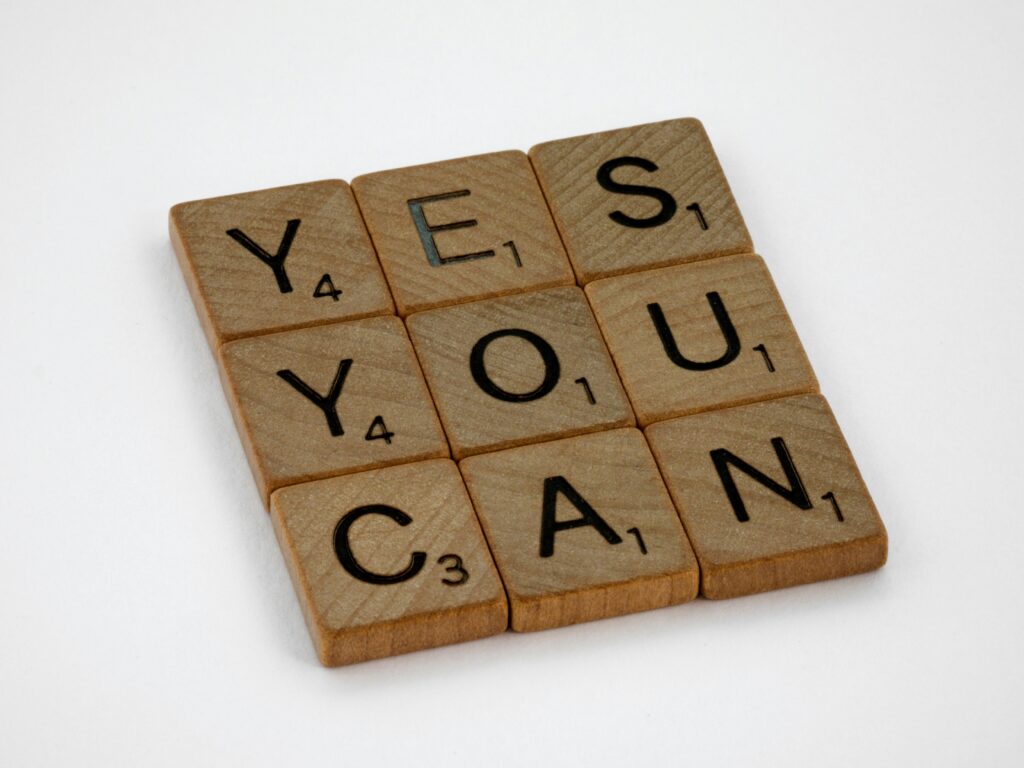
Self-confidence is the belief in one’s own abilities, judgment, and worth. It’s the trust in oneself to handle challenges, make decisions, and achieve goals. Self-confidence is not just about feeling good about oneself, but also about being able to:
- Take risks and face challenges
- Make decisions and take responsibility
- Set boundaries and assert oneself
- Learn from failures and mistakes
- Develop resilience and perseverance
- Build strong relationships and communicate effectively
- Embrace opportunities and growth
- Manage self-doubt and criticism
How to develop self confidence
Self-confidence is not fixed but can be developed and strengthened over time with:
- Positive self-talk and affirmations
- Achieving small wins and building momentum
- Learning from failures and setbacks
- Surrounding oneself with supportive people
- Practicing self-care and self-compassion
- Developing a growth mindset and learning new skills
- Setting realistic goals and celebrating achievements
- Building resilience and coping skills
- Challenging negative self-talk and limiting beliefs
- Embracing one’s strengths and weaknesses
Remember, self-confidence is a journey, and it’s okay to have ups and downs. The key is to be patient, kind, and compassionate with oneself while working towards building and maintaining self-confidence.
Building Self Confidence:
Building self-confidence involves developing a positive self-image, overcoming self-doubt, and cultivating a growth mindset. Here are some strategies to help you build self-confidence:
- Identify and challenge negative self-talk: Notice when you’re thinking critical thoughts about yourself, and reframe them in a positive and realistic light.
- Focus on your strengths: Rather than dwelling on weaknesses, acknowledge and celebrate your skills and accomplishments.
- Set achievable goals: Break down larger goals into smaller, manageable tasks rather than overly multitasking, and celebrate your successes along the way.
- Practice self-care: Take care of your physical, emotional, and mental well-being by getting enough sleep, exercise, and also healthy nutrition.
- Surround yourself with positive influences: Spend time with people who support and encourage you, and also avoid those who bring you down.
- Embrace mistakes and learn from failures: View mistakes as opportunities for growth and learning, rather than as reflections of your worth.
- Develop a growth mindset: Believe that your abilities and intelligence can be developed through dedication and hard work.
- Practice mindfulness and self-compassion: Treat yourself with kindness, understanding, and patience, just as you would a close friend.
- Take calculated risks: Step out of your comfort zone and take on new challenges to build an overall confidence in your abilities.
- Celebrate your successes: Acknowledge and celebrate your achievements, no matter how small they may seem.
- Seek feedback and learn from criticism: Use constructive feedback to identify areas for improvement while you build confidence in your abilities.
- Practice positive affirmations: Repeat positive statements about yourself and your abilities to reinforce a positive self-image.
Remember, this trait takes time and effort, but with persistence and patience, you can develop a stronger, more confident you.
Self-confidence is the trust and belief in one’s own abilities, judgment, and worth. It’s also the feeling of being capable and empowered to handle challenges and achieve goals. Self-confidence is not the absence of doubts or fears, but the ability to overcome them and take action despite uncertainty.
Characteristics of self-confident people:
- Positive self-talk
- Realistic self-awareness
- Emotional resilience
- Goal-oriented mindset
- Ability to take calculated risks
- Openness to learning and feedback
- Strong sense of self-worth
- Ability to bounce back from failures
- Assertive communication
- Self-motivation and discipline
Benefits of being confident
- Improved mental health and well-being
- Increased resilience and adaptability
- Enhanced problem-solving and decision-making skills
- Greater self-motivation and productivity
- More effective communication and relationships
- Increased ability to take risks and seize opportunities
- Improved physical health and overall quality of life
- Greater sense of purpose and direction
- More effective coping mechanisms for stress and anxiety
- Increased overall happiness and life satisfaction
Remember, this trait can be developed and strengthened over time with practice, patience, and persistence.

